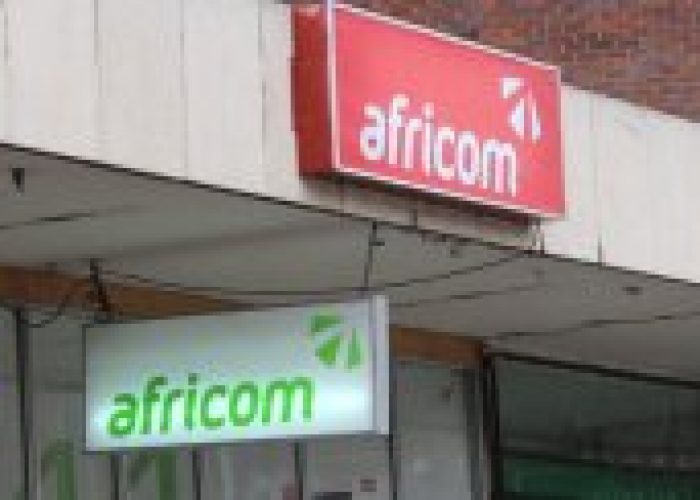



So Techzim published a breakdown of what happened between NSSA, the Zimbabwe military and Africom which resulted in Zimbabwean citizens bearing a USD15 million loan that had been acquired by Africom.
Africom has published some statement in newspapers ‘clarifying’ what happened. In the statement they claim that ‘certain elements of the media’ (which possibly means Techzim) were misrepresenting facts. However, all the clarification they give is exactly what we said in the article we wrote.
First here is Africom:
AFRICOM CLARIFIES NSSA ROLE IN AFREXIMBANK LOAN
Africom wishes to state facts on the Africom Afreximbank loan of 15m after having noted that certain elements of the media continue to misrepresent the contents on the recently published Forensic Audit Report into the National Social Security Authority (NSSA).It is indeed fact that Africom Holdings borrowed money from Afreximbank to finance the deployment of telecommunication infrastructure in line with the company’s objective of expanding its services beyond the Harare and Mains Corridors Coverage.Unfortunately, this was a short-term loan that fell due before revenues on the first phase were realised as technical challenges that came with switching on and interconnection of the Network with other operators took longer than the 36-month tenure of the funding. The project was suffocated resulting in the company’s inability to service the loan.
While it is true that at the time NSSA held a 4% stake in Africom Holdings, the pension fund also owned 47.7% ofAfricom Continental whose activities had also been impacted by the problems at its parent company. In turn, Fernhaven owned 41% of Africom Holdings and 19.3% of Africom Continental and these two shareholders, who had the most to lose in the event of the loan call outcome, came together and considered a number of options including restructuring of the loan.In so doing, the two entities assisted Africom with the security required to extend the loan amortisation period by another 36 months thereby allowing the first phase of the network to be brought online.
When the shareholders met again to discuss NSSA’s role as part of the guarantors, the fund took on this responsibility with a view of their 47.7% holding in Africom Continental and agreed to be the next guarantor with the specific condition that Fernhaven provide a guarantee using immovable property. As a result, a mortgage was registered in favour of NSSA.
Fortunately, when the loan fell due, the Reserve Bank had established the Zimbabwe Asset Management Corporation (Private) Limited (ZAMCO) as part of holistic measures to deal with the problem of rising non-performing loans (NPLs) in the banking sector. As Africom met the criteria for this facility, the shareholders prepared all of the required documentation with Fernhaven attaching one of its properties as part of the conditions. In so doing, NSSA was absolved of any exposure and did not part with the US$15.8 million as reported in some sections of the media. This is clearly outlined in the NSSA forensic report but has been wrongly interpreted.
Rather, NSSA and Fernhaven contributed equally towards ZAMCO’s USD606,279 establishment fee and the two entities were compensated with increased shareholding in Africom for having provided the needed security and saving the jobs of over 120 employees. AT NO POINT DID NSSA PAY THE USD15.8 MILLION AS REPORTED IN THE MEDIA. Rather, the fund’s financial loss on the transaction is limited to USD303,140.
Today, Africom is still committed towards providing an exceptional service to its clientele across Zimbabwe and the company is extending its digital footprint to more communities. We are thankful to all our clients and stakeholders who have supported and helped the company to grow to where it is today and sincerely look forward to nurturing and growing these relationships for our mutual benefit.
Africom is refuting claims that were never made at least not by this publication. We contended and still contend that Zimbabweans paid millions to service the more than USD15 million loan given to Africom by Afreximbank. We didn’t say they paid this through NSSA but rather that they paid when ZAMCO took over that debt. Where does ZAMCO get its money?
According to the forensic audit into NSSA report, the board had decided to limit NSSA’s exposure to their 4.5% shareholding in Africom Holdings and there was no mention of the subsidiary Africom Continental. This decision was reversed because of the leaning of the then Minister of Social Services, Nicholas Goche and the Office of the President according to the report. That is not proper.
It’s regrettable that Africom said this:
Fortunately, when the loan fell due, the Reserve Bank had established the Zimbabwe Asset Management Corporation (Private) Limited (ZAMCO) as part of holistic measures to deal with the problem of rising non-performing loans (NPLs) in the banking sector. As Africom met the criteria for this facility, the shareholders prepared all of the required documentation with Fernhaven attaching one of its properties as part of the conditions. In so doing, NSSA was absolved of any exposure and did not part with the US$15.8 million as reported in some sections of the media.
ZAMCO used public funds to acquire debts that had been incurred by all sorts of companies. Some of these companies were indebted due to negligence and plain old being unscrupulous. There is nothing fortunate about public funds being used to absolve unscrupulous behavior.
The post #NSSAGate Africom Dismisses Techzim Story By Confirming Every Detail In The Story appeared first on Techzim.